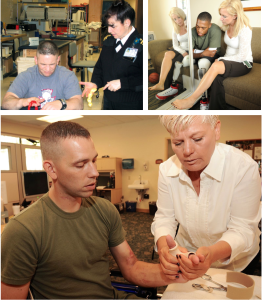What is a full OT assessment?
An Occupational Therapy (OT) assessment is a comprehensive evaluation conducted by an occupational therapist to assess an individual’s functional abilities and limitations. A full OT assessment aims to identify the impact of physical, cognitive, and emotional factors on a person’s daily life activities and participation. It provides valuable information to guide intervention planning and treatment strategies tailored to meet the individual’s specific needs.
Why is a full OT assessment necessary?
A full OT assessment is necessary to gather detailed information about a person’s abilities, limitations, and overall functioning. It helps identify the specific areas in which an individual may be experiencing difficulties and provides a holistic view of their functional capabilities. By conducting a thorough assessment, occupational therapists can develop personalized intervention plans to enhance independence, promote participation, and improve overall quality of life.

Components of a full OT assessment
A full OT assessment typically consists of several components that are tailored to the individual’s unique circumstances. These components may include:
- Interview and History: The therapist interviews the individual and gathers information about their medical history, lifestyle, daily routines, and personal goals. This helps in understanding the person’s background and any factors that may be impacting their occupational performance.
- Observation: The therapist observes the individual performing various tasks and activities in different environments, such as home, work, or school. This allows the therapist to assess the person’s functional abilities, movement patterns, coordination, and safety awareness.
- Standardized Assessments: Occupational therapists use standardized assessment tools to evaluate specific areas of functioning, such as fine motor skills, sensory processing, visual perception, cognitive abilities, and activities of daily living (ADLs). These assessments provide objective measures to identify strengths, weaknesses, and areas for improvement.
- Functional Assessments: The therapist assesses the individual’s ability to perform everyday tasks, such as dressing, grooming, meal preparation, and household chores. This helps determine the person’s level of independence and highlights any challenges they may face in their daily life.
- Environmental Assessment: The therapist evaluates the person’s living and working environments to identify any barriers or modifications that may be necessary to optimize their occupational performance. This may involve assessing the accessibility, safety, and ergonomics of the surroundings.
- Collaboration: A full OT assessment often involves collaboration with other healthcare professionals, such as physicians, psychologists, or speech therapists. This interdisciplinary approach ensures a comprehensive understanding of the individual’s needs and facilitates coordinated care.
Benefits of a full OT assessment
A full OT assessment offers several benefits to individuals seeking occupational therapy services. Some of the key benefits include:
- Accurate Diagnosis and Intervention Planning: By conducting a comprehensive assessment, occupational therapists can accurately diagnose the underlying issues affecting a person’s occupational performance. This forms the basis for developing targeted intervention plans tailored to the individual’s specific needs.
- Individualized Treatment: A full OT assessment provides valuable insights into an individual’s strengths, weaknesses, and personal goals. This information allows occupational therapists to design personalized treatment strategies that address the person’s unique challenges and promote optimal functioning.
- Measurement of Progress: Regular reassessment and monitoring of progress are essential in occupational therapy. A full OT assessment establishes a baseline and provides a reference point for evaluating the effectiveness of interventions over time. It helps determine whether the therapy goals are being met and guides adjustments to the treatment plan, if necessary.
- Advocacy and Support: A comprehensive assessment report can serve as a valuable resource for individuals, their families, and healthcare providers. It helps advocate for appropriate accommodations, support services, or workplace modifications that can enhance the person’s participation and well-being.
Conclusion
A full OT assessment is a vital step in the occupational therapy process. It provides a comprehensive understanding of an individual’s functional abilities, limitations, and environmental factors that influence their daily life activities. Through a combination of interviews, observations, standardized assessments, and functional evaluations, occupational therapists gain valuable insights to design personalized intervention plans and facilitate the individual’s progress towards improved independence and overall well-being. By embracing the benefits of a full OT assessment, individuals can optimize their occupational performance and enhance their quality of life. https://inclusivementalhealth.org/occupational-therapy-victoria/


